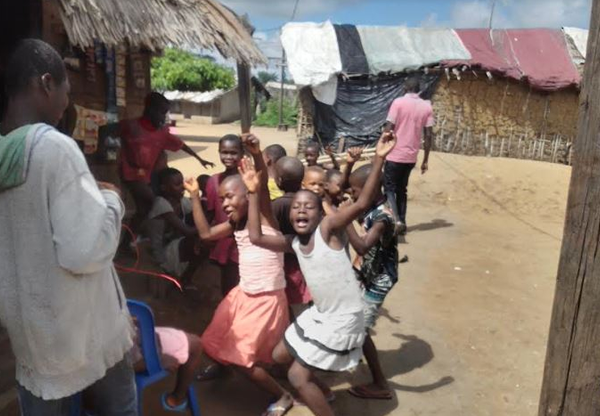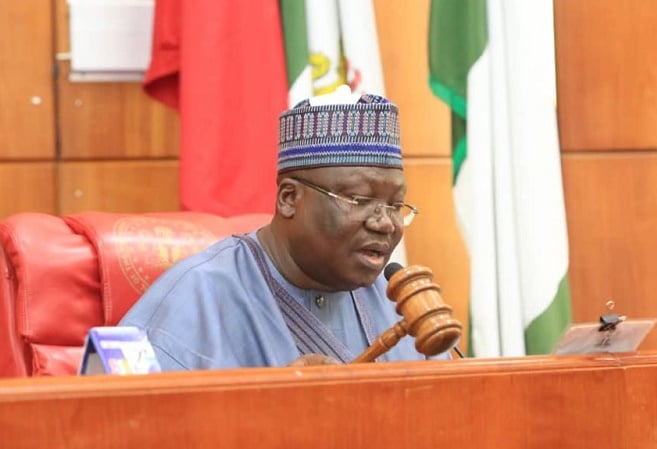Children dancing to the beat of music at Umon island
On 20th November 1989, children all over the world finally got the voice they deserve with the signing of the Convention on the Rights of the Child by the United Nations General Assembly. The document introduced as a human rights treaty which stipulates the civil, political, economic, social and cultural rights of children, had four core principles: non-discrimination; devotion to the best interests of the child; the right to life, survival and development; and respect for the views of the child. Fourteen years later, precisely in September 2003, Nigeria adopted the Child Rights Act as a legal document to domesticate the convention.
Apart from incorporating all the rights and responsibilities of children, the act was also meant to integrate children-focused legislation into one comprehensive law. It defines a child as one who is below the age of eighteen years and captures all of its essence in the part one (1) which states: “In every action concerning a child, whether undertaken by an individual, public or private body, institutions or service, court of law, or administrative or legislative authority, the best interest of the child shall be the primary consideration.”
Although the act has to be domesticated in all the 36 states for it to be effective, only 25 states have adopted it, with 11 others still pending, according to a document from YouthHubAfrica. These states include Kebbi, Kano, Katsina, Sokoto, Jigawa, Zamfara, Bauchi, Yobe, Gombe, Borno and Adamawa.
WHAT THE ACT PROVIDES FOR
Advertisement
Among its basic provisions include: Free, compulsory and universal primary education; freedom from discrimination on any ground; every Nigerian child is entitled to rest and enjoyment of the best attainable state of their health; every government in Nigeria shall strive to reduce infant mortality rate, provide medical and ensure the development of primary health care for children; care of children in need of special protection measures; as well as proper care for expectant and nursing mothers.
The act further prohibits betrothal or marriage of children; child abduction and forced exploitative hard labor involving children; dealing in children for purpose of begging, hawking, prostitution or for unlawful immoral purposes as well as any form of abuse and maltreatment against children.
WORRYING STATISTICS FROM NIGERIA
Advertisement
Although the Child Rights Act seeks to prioritise the interest of children in Nigeria with regards to critical areas such as their education, welfare and healthcare, available statistics are disturbing and suggest a lack of proper care for the Nigerian child.
For instance, there were 10.5 million out of school children in the country as at 2015, according to a report released by the United Nations Children’s Fund (UNICEF), making Nigeria the country with the highest number of such children in the world. Although primary education is officially free and compulsory, only 67 per cent of eligible children reportedly take up a place in primary school. Nigeria is also the country with the highest number of people living in extreme poverty in the world, according to the World Poverty Clock, with 91 million of its citizens caught in that trap ie. (those living below the poverty line of $1.90 or N693.5 per day).
Of course, Nigerian children bear the brunt of this but a more disturbing statistics is that with an estimated population of 201 million citizens, according to the United Nations Population Fund (UNFPA), a great percentage of that population are children: 44 percent or 88.44 million Nigerians are between the ages of 0 and 14, while 32 percent, 64.32 are within the ages of 10 and 24.
Furthermore, the International Labour Organisation (ILO) estimates that 43 percent of Nigerian children aged between five and 10 years are involved in child labour with the informal private sector — engaging 75 percent of such children — as the major culprits.
Advertisement
There are even more worrisome statistics like the 1.4 million children who have been displaced by insurgency or worse, the one million of such children who do not know their parents? What happens to these children and who takes care of them?
Indeed, Nigeria has a long way to go in ensuring the welfare of children — and states implementing the provisions of the Child Rights Act is a good place to start.
Views expressed by contributors are strictly personal and not of TheCable.







